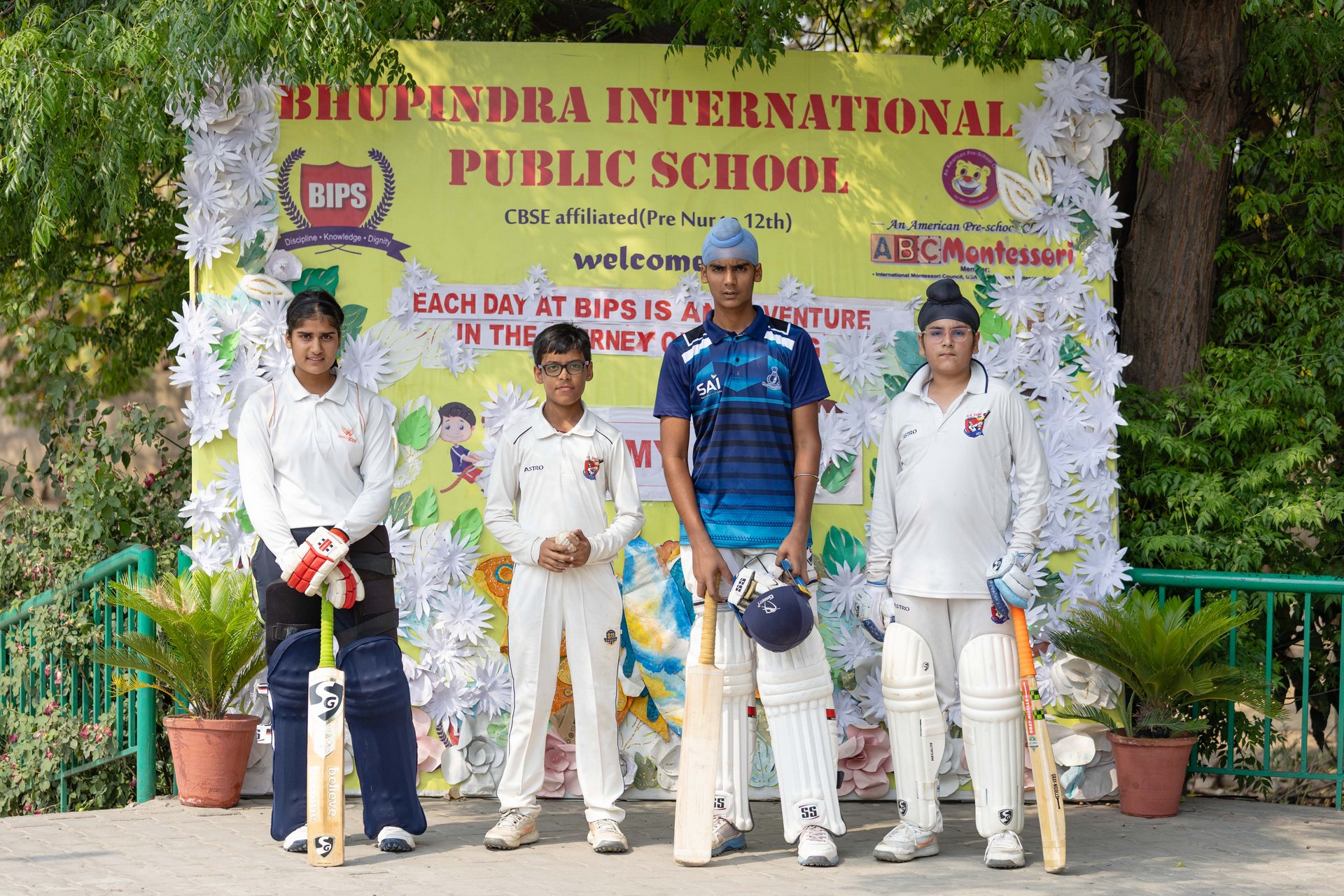In today's competitive school environment, academic success goes far beyond the school classroom and textbooks.
At BIPS (Bhupindra International Public School), one of , we realize that co-curricular activities are the stepping stones for the all-around growth of students who are successful not only at school but also in life.
These activities are the motivational forces that precede learning, promote life skills, and play an important role in overall scholastic success.
Beyond the Classroom: A Holistic Approach to Learning
include a broad spectrum of activities such as sports, arts, music, drama, debate, science clubs, and community service.
The activities supplement formal academic disciplines by giving practical applications of theoretical principles.
When students are involved in a science fair, they implement scientific principles studied in class to real-world problems.
Likewise, involvement in debate competitions sharpens critical thinking skills that have a direct correlation with subjects such as literature, social studies, and even mathematics.
Research repeatedly indicates students who are engaged in co-curricular activities demonstrate better academic accomplishment, increased graduation rates, and increased college acceptance rates.
This is because these activities enhance thinking skills, emotional intelligence, and social skills that maximize learning potential.
Acquiring Vital Life Skills
One of the greatest advantages of co-curricular activities is the way that they assist in the development of life skills that are not possible to learn from a book.
Student council experience, sports captaincy, or stage direction allows students to learn decision-making, communication, and the ability to initiate.
These skills directly benefit better class participation, better group work on projects, and better presentation skills.
Time management is second nature when students juggle academic obligations with extracurricular activities.
This is a skill that serves them throughout their working and academic lives. Students prioritize, meet deadlines, and work under pressure – all important aspects of academic achievement.
Fostering Social and Emotional Growth
Co-curricular activities are arenas where students can mix with other students with common interests and thus form social relationships and close friendships. The friendships form support networks that enhance the entire school life and promote emotional health. Students who are engaged with their school community are engaged learners and perform better academically.
Team sport participation helps individuals learn to work together, empathize with others, and resolve conflict. Drama and music work enables students to express emotions in a positive manner and develop self-esteem. These social and emotional skills are the beginning of academic achievement by decreasing stress, enhancing concentration, and fostering motivation to learn.
Applied Use of Theoretical Concepts
Co-curricular activities are laboratories where theory is put into practice. Mathematics is brought to life in robotics clubs, physics concepts are illustrated in science fairs, and history is reinterpreted through model United Nations.
This experiential learning reinforces teaching in the classroom and makes abstract ideas more concrete and memorable.
Art, music, and writing are intellectual activities that engage disparate parts of the brain, stimulating cognitive flexibility and problem-solving.
All subjects of study benefit from these skills, most significantly evoking creative solutions to thorny dilemmas and thinking beyond the traditional paradigms.
Developing Resilience and Determination
Co-curricular activities are usually associated with challenges, errors, and setbacks that impart useful lessons in persistence and resilience.
A student who loses a debate contest learns to dissect errors, strengthen arguments, and attempt again.
An athlete who fails to make the team at first understands the importance of persistent effort and ongoing improvement. Such experiences shape character attributes for successful scholarship, especially in the face of difficult subjects or difficult exams.
Career Exploration and Future Preparation
Many co-curricular activities provide early experience in potential careers. Students interested in journalism can work on school newspapers, potential engineers can participate in robotics clubs, and potential leaders can be involved in student government. Early exposure helps students make informed decisions regarding academic focus and career aspirations.
Being one of the premier schools in Patiala, BIPS recognizes that universities and employers are more likely to look for well-rounded applicants with varied interests and skills.
Co-curricular activities offer tangible instances of commitment, collaboration, and leadership that make college application forms and employment interviews more robust.
Conclusion
The incorporation of co-curricular activities in educational curricula is not just an appendage to learning in classroom settings – it is an intrinsic part that adds strength, depth, and optimizes academic achievement. They shape the entire student as a person who is not only academically proficient but also emotionally mature, socially adept, and able to cope with the challenges of the future.
We at BIPS are strong proponents of the role of co-curricular activities in educational excellence.
Through the offering of varied opportunities for students to pursue their interests, refine their talents, and acquire valuable life skills, we ensure that our students are equipped not only for academic achievement, but for achievement in life.
The investment in co-curricular activities is an investment in our students' growth and future achievement.

